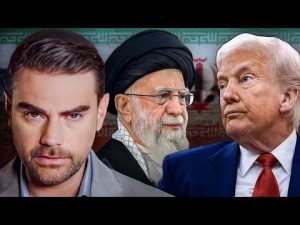On a quiet Friday morning, attention was drawn once more to the conflict in the Middle East, with Southern Israel experiencing a noteworthy incident. A single missile managed to penetrate Israel’s robust defenses and landed near an apartment complex in Beer Sheva, causing a fire and significant damage. Fortunately, there were no injuries reported, giving the residents a sigh of relief. The incident was attributed to an exceptionally rare malfunction in an interceptor system—seems even the most advanced technology needs a day off now and then.
Adding to the tension, earlier reports had indicated a missile striking the Soroka Hospital in the same town. As if the citizens didn’t have enough on their plate, they now have to consider whether these strikes are merely accidents or the precursor to something more sinister. Meanwhile, the constant specter of Iran’s nuclear ambitions looms large. According to expert insights, Iran might have enough enriched material to create a nuclear bomb but lacks immediate plans to take that step. It’s a bit like knowing there’s enough cake batter in the kitchen but no clear intention of baking a cake—yet. The suggestion that diplomacy could avert Iran’s nuclear acquisition is optimistic, though, at times, optimism seems as rare as the malfunction that allowed that missile through.
The situation escalates as images emerge of Israeli forces striking missile systems in Iran. These operations, reportedly taking place over Tehran, target radar installations and missile systems meant to attack Israeli aircraft. Israeli defense forces claim they are operating freely in Iran’s skies, apparently without the risk of being shot down, as if the skies were one big open highway—a claim that surely must have Iranians feeling rather exposed.
At the heart of geopolitical maneuvering is the United States, where all eyes focus on President Trump. He is expected to make a pivotal decision within two weeks regarding potential military action against Iran. This deadline not only puts pressure on international actors but also seems to provide Israel time to strategically degrade Iran’s defenses, in alignment with America First policies. Here, the theory abounds that the delay might be a tactical move, allowing Israel to unmask Iran’s nuclear ambitions from the shadows.
Meanwhile, the lack of response from Iran’s regional allies, such as Hezbollah and Hamas, adds another layer of intrigue. Their silence is deafening, suggesting either strategic patience or sheer inability to retaliate effectively. Some speculate that Iran might be feeling isolated, pressured, and perhaps, just a tad bit anxious. With Iran economically strained and politically cornered, Israel seems to have identified this moment as an opportunity—an opportunistic window that might not be open for long. In these complex times, the dance between diplomacy and military might make for a tense geopolitical tango, hopefully ending with everyone on their feet and not under a proverbial table.







